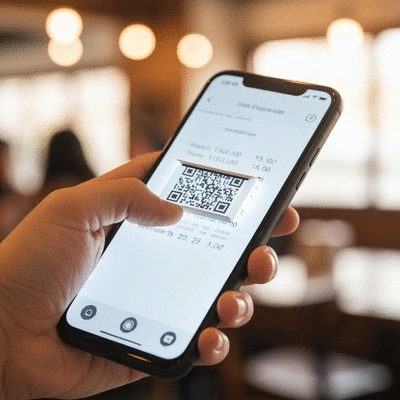1. Easy Data Entry
Inputting expenses is straightforward and can be done on-the-go.
Are you tired of losing track of your travel expenses? With the right tools, like a well-structured travel expense tracker in Excel, you can take control of your finances while exploring new destinations. Discover how to maximize your budgeting game on your next trip!
Here are some important advantages of utilizing a travel expense tracker in Excel:
Inputting expenses is straightforward and can be done on-the-go.
Design the tracker to suit your preferences and travel habits.
Excel can quickly compute totals, saving you time.
Visualize your spending patterns easily with charts and graphs.
When it comes to managing travel expenses, having a reliable travel expense tracker is essential for both personal and business trips. Not only does it help you stay organized, but it also ensures that you don't miss out on deductions or reimbursements. Tracking expenses can feel daunting, but with the right tools, like Excel, you can streamline the process and gain better control over your finances. For more insights on how to manage your finances, check out our guide on easy Excel templates for finance.
At Sheet Nerds, I believe that a well-structured travel expense tracker can empower you to keep an eye on your spending habits. Whether you’re exploring new destinations for leisure or traveling for business meetings, understanding where your money goes is key to successful budgeting. Let’s dive into why tracking travel expenses matters!
Tracking travel expenses is crucial for several reasons. For personal trips, it helps you stick to your budget and avoid overspending. If you're on a business trip, an accurate record of your expenses is vital for reimbursements and tax deductions. Here are some reasons why tracking your travel expenses is so important:
By documenting your expenses, you'll not only feel more at ease during your travels but also have a clearer picture of your financial health post-trip.
Excel is a powerful tool for managing expenses, thanks to its flexibility and functionality. As someone deeply passionate about Excel, I can’t stress enough how versatile it is for organizing your travel expenses. Whether you're a novice or a seasoned user, Excel provides a platform that can be tailored to fit your specific needs. You can also explore how to track expenses in Excel for general financial management.
With features like customizable templates, formulas, and charts, Excel allows you to create a travel expense tracker that is both functional and user-friendly. Plus, you can easily update it as your travel plans change, ensuring that your records are always current!
Using a travel expense tracker in Excel offers numerous benefits that can make your travel experience smoother. Here are some key advantages:
Ultimately, a well-organized travel expense tracker can not only enhance your travel experience but also boost your overall financial awareness.
To enhance your travel expense tracking in Excel, consider using built-in data validation features to create dropdown lists for expense categories. This not only speeds up data entry but also ensures consistency in your reporting, helping you to analyze your spending patterns more effectively.
Keeping your travel expenses in check is crucial for both personal budgeting and business financial management. At Sheet Nerds, I understand that effective tracking can be a game changer. It’s not just about recording numbers; it's about gaining insights that lead to smarter financial decisions!
To help you make the most of your travel expense tracker in Excel, here are some essential tips and strategies. These will not only improve your tracking efficiency but also enhance your overall experience.
Regularly updating your travel expense tracker can make a world of difference. To keep everything organized, consider the following:
By implementing these tips, you'll find it easier to maintain your tracker and keep your financial goals on track!
Even the most seasoned travelers can make mistakes when it comes to expense tracking. Here are some pitfalls to avoid:
Avoiding these common mistakes will help you stay organized and make your tracking process smoother. Trust me, it can save you a lot of hassle down the road!
Once you have established your travel expense tracker, it’s time to dive deeper into the data. Using financial reporting techniques will allow you to gain valuable insights. For example, you can learn how to streamline reports with Excel templates to better visualize your spending:
These techniques will empower you to make informed financial decisions based on your travel expenses, and help you stay within your budget!
A1: For personal trips, it helps you stick to your budget and avoid overspending. For business trips, it's vital for accurate reimbursements and tax deductions, ensuring financial control and identifying potential savings.
A2: Excel is highly versatile and functional, offering customizable templates, formulas for instant calculations, and charting features for visual insights into spending patterns. It can be tailored to fit specific travel needs and updated easily.
A3: Key benefits include easy data entry, customizable features, instant calculations of totals, and visual insights through charts and graphs, all contributing to better financial awareness and a smoother travel experience.
A4: Tips include scheduling regular updates (daily/weekly), using clear descriptions for each expense, color-coding categories for quick identification, and reviewing your spending monthly to adjust your budget.
A5: Avoid neglecting small expenses, failing to save receipts, inconsistent data entry, and ignoring currency differences for international travel. These can lead to disorganization and financial hassle.
Ready to streamline your travel expense tracking? Don’t forget to download your free travel expense tracker template from Sheet Nerds. It’s packed with features to make tracking easy and efficient!
If you want to learn more about optimizing your use of Excel, check out our in-depth tutorials at Sheet Nerds. There’s always something new to discover, no matter your skill level!
Don’t miss out on being part of our community! Connect with other Excel enthusiasts where we share tips, tricks, and best practices for mastering your spreadsheets. Together, we can all become Excel Nerds!
Here is a quick recap of the important points discussed in the article:


